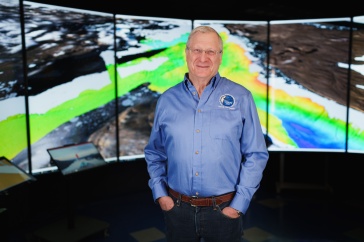
Left photo: Ruth Varner (right) works with some students at a monitoring site. Right photo: Clarice Perryman (right) gets some help from Dr. Varner getting out of a peat bog.
Clarice Perryman, a Ph.D. candidate in Earth & environmental science at UNH, describes mentorship as an important component of her education at the university. Working with faculty mentors like Ruth Varner, Professor of Bio-geosciences in the Department of Earth Sciences and Earth Systems Research Center, has helped her grow as a scientist and navigate professional challenges.
While the representation of women has increased in the geosciences, there are still pervasive gender biases in STEM (science, technology, engineering, and mathematics) that affect the career trajectories of many women. Quality mentorship is a key need to increase representation of people historically excluded from STEM because of their gender, racial, or other identities.
“While the representation of women has increased in the geosciences, there are still pervasive gender biases in STEM (science, technology, engineering, and mathematics) that affect the career trajectories of many women,” says Perryman. “I truly believe that quality mentorship is a key need to increase representation of people historically excluded from STEM because of their gender, racial or other identities."
“Women are also more commonly motivated by altruistic factors, like social justice and environmentalism, and having women mentors – mentors like Dr. Varner – who encourage my interests in these areas alongside my scientific focuses has helped enrich my experience in graduate school,” adds Perryman.
During her career, Varner has served as a primary mentor to 50 female students researching bio-geoscience – the study of the interaction of biological and geological processes. These students have ranged from undergraduates to post-doctoral researchers. In working with all these students, Varner has supported and encouraged them to participate in environmental and social justice efforts, challenging them to become better citizens of UNH and of the local and scientific communities they belong to.
“Many of my students serve on committees and boards within and outside of UNH that allow them to bring forward the issues of gender equity in our field,” said Varner. “Several of my mentees are also leaders in racial and environmental justice, and I am endlessly proud and humbled by their work and continue to learn from them as I strive to always improve my mentoring.”
-
Written By:
Nicholas Gosling '06 | COLSA/NH Agricultural Experiment Station | nicholas.gosling@unh.edu
-
Compiled By:
Brooks Payette | College of Engineering and Physical Sciences
















































